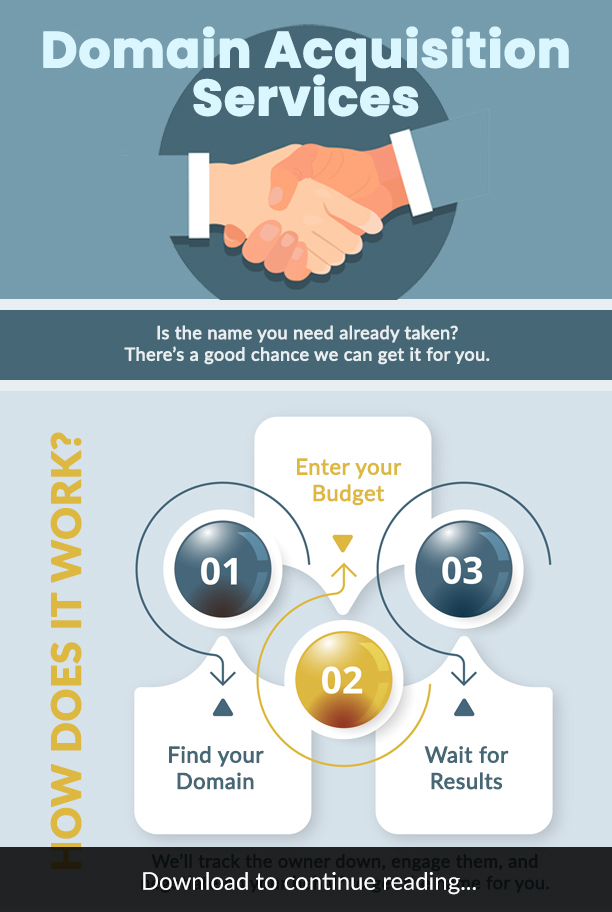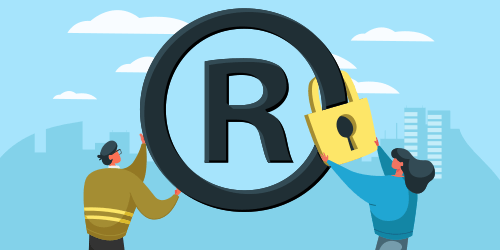
How a Dead Drug Lord Got $3 Million for a Domain Infringement
When is a name more than just a Name?
In most instances, a person cannot copyright or trademark their own name, but there is an exception to every rule.
The USPTO, as directed by Section 2(e)(4) of the Lanham Act, has long held that a person’s last name should be refused trademark registration if it is without evidence of long and exclusive use which changes its significance to the public from that of a surname of an individual to that of a mark for particular goods or services. See 222 U.S.P.Q. 260 (T.T.A.B. 1984). The rationale behind this is that someone should not be prohibited from using their own name to promote their goods or services, so a trademark with a surname will need to show it has acquired a secondary meaning with the purchasing public that distinguishes the mark from being merely a surname.
How Escobar, Inc. won a $3 Million fight over the Domain Name pabloescobar.com?
Pablo Escobar may have died in a shootout in 1993, but his intellectual property and holdings live on through Escobar, Inc.
The UDRP Case
Recently, a UDRP was decided in favor of the Complainant regarding the domain pabloescobar.com. The Complainant, Escobar, Inc., claimed trademark rights of PABLO ESCOBAR, which was granted by the USPTO in 2017. The domain pabloescobar.com was registered by the Respondent in the UDRP back in 1999. Normally this would be enough to deny the relief sought in the complaint, as the domain was registered almost 15 years before the trademark was granted. However, in this case, the UDRP Panelist found in favor of the Complainant, because the Complainant claimed common law trademark rights dating back to 1986. This is where a typical UDRP case can get a little murky. In addition, this is a great example of how important it is to respond to a UDRP complaint to protect your rights and to contest disputed “facts” provided by the Complainant.

About Escobar, Inc.
Escobar, Inc. is a private holding company based in Medellín, Colombia, which was first established in 1984 by Pablo Emilio Escobar Gavirias’ brother, Roberto De Jesus Escobar Gaviria. It was reincorporated in 2014, at which point it applied for intellectual property related to Pablo Escobar. Now, the company is responsible for managing the assets of the Escobar family and owns all the intellectual property relating to Pablo Escobar, such as copyrights, trademarks, and all other rights.
The Facts of the Matter
According to the timeline provided by Escobar, Inc.’s own website, Escobar Inc. was founded in 1984 as a general holding company for assets and value protection for Pablo Escobar and his brother Roberto. In order to have developed trademark rights in the term PABLO ESCOBAR, the Complainant must show that it consistently used the term and affixed it to goods to develop some distinctiveness apart from being a surname, which is unlikely for a holding company. In 1992, Roberto Escobar surrendered to authorities and was imprisoned for approximately 12 years. In 1993, Pablo Escobar died, and all Escobar, Inc. projects were “put on hold.” Roberto was released from prison in 2004, and in November of 2014, Escobar Inc. was re-incorporated into its current business. In the trademark registration, it is also claimed that the term “Pablo Escobar” does not identify a living person, which was true on the date of filing in 2016, but not on the claimed first use in commerce in 1986.
Where the “Facts” Do Not Align
There are some understandably large gaps in the above timeline, but it can be assumed that the term PABLO ESCOBAR was not being used by the Complainant during the period of 1993 to 2004 at the very least. Section 45 of the Lanham Act states that “nonuse for three consecutive years shall be prima facie evidence of abandonment. ‘Use’ of a mark means the bona fide use of that mark made in the ordinary course of trade, and not merely to reserve a right in a mark.” 15 U.S.C. Sec 1125.
The specimen submitted to the USPTO by Complainant was a DVD with the name Pablo Escobar imprinted on the cover, which does raise some concerns on the claimed first use in commerce date unless there were other uses on goods that were not provided to the USPTO for some reason. Giving the Complainant the benefit of the doubt about acquiring common law trademark rights in 1986, it would seem that any rights to that trademarked term were abandoned between 1993 when “all projects were put on hold”, and 2014 when the entity was re-incorporated, or at the very earliest when Roberto was released in 2004. Regardless, either of these dates is well after the Respondent first registered the domain pabloescobar.com, and therefore would not have infringed upon the Complainant’s rights at the time of registration. UDRP rules require that a Complainant show the Respondent acted in bad faith in the registration AND use of the domain to be successful.
Why the Respondent Lost the UDRP
Yet by remaining silent in the UDRP proceeding, the Respondent did not provide any defense to the domain registration, and the Panelist was constrained to accept the veracity of the facts alleged in the complaint. The Complainant pointed at the fact that the Respondent made no use of the domain, and was seeking three million dollars as the purchase price of the domain, which in the Complainant’s estimation was an exorbitant amount. It is not in the Panelist’s purview to decide what amounts are appropriate for the sale of a domain name, but by the Respondent not providing a justification for the price, the Complainant’s claim was left unchallenged.
As for how the Respondent chose to use or not use the domain, the Panelist had no basis on how to proceedother than the Complainant’s assertion that non-use for almost twenty years shows no legitimate interest and bad faith in the registration of the domain. If the Respondent had used the domain in even the smallest “fair use” capacity, such as providing facts on the life of Pablo Escobar, or using it as a platform for parody or satire of the term, it would again be unlikely that the Panelist would have decided in the Complainant’s favor.
View the complete case here
Escobar, Inc. v. Neil Okrent / Ivan Munguia
This case should be a reminder not that some UDRP decisions can be made incorrectly but of the dangers of not providing a response when required. In this case, the Respondent lost a valuable digital asset and potential three million dollars because they failed to submit a response to the UDRP Panelist. A domain is a valuable asset, and an owner should make sure they manage it correctly and tenaciously to prevent loss or abandonment.
If there are indicators that your copyrighted work is in abuse, a Copyright Infringement Notice Letter or DMCA Take Down Notice is in order. Keep in mind, this course of action is only worthwhile when conducted in a timely manner. If you wait too long, it might be too late to act on, and therefore you should pursue a claim as soon as possible. Any cause of action has a statute of limitations imposed upon it.
Our team of corporate domain experts is here to help you protect your domain portfolios and guide you through the internet landscape to avoid pitfalls and missteps that may cost you, as it cost this Respondent.
If you fall victim of copyright infringement, act right away.
Learn more about UDRP +1.888.982.7940
Let the Domain Concierge take care of it
Sometimes, the domain name you have your heart set on is already legally registered and owned by someone else, but that doesn’t mean it is lost forever.
The 101domain Domain Concierge Service can help you to acquire a domain name if the current owner is willing to sell the rights to you. Your identity remains private throughout the process, while our experienced domain brokers reach out to the registrant to negotiate a sale on your behalf.
If you’re not comfortable contacting the domain owner or buying a potentially higher price, you can attempt to procure the domain when it expires.

Remember to renew your domain name registration!
When missing the renewal of a company’s domain name, it can be a costly mistake and crippling for any business. The name can be bought by someone else, and without email access through the site, it’s also possible to lose contact with clients.
It is advisable to opt for a multiple year registration upfront or to set up auto-renew payment. For the latter, it is important to make sure that the credit card on file didn’t expire within this time period.
Contact Us +1.888.982.7940

We are renowned for our global reach and capabilities—get the services and support you need to make meaningful decisions to ensure your brand is always protected.

Monitoring & Enforcement Services
Our monitoring solutions and dedicated analysts work around the clock for you. When a problem is found, we have solutions available to take care of it in-house.

Our Security & Technology Partners
As a security-focused domain name and web technology provider, we have a wide range of complementary services and best-in-class partners available to you when you need them.